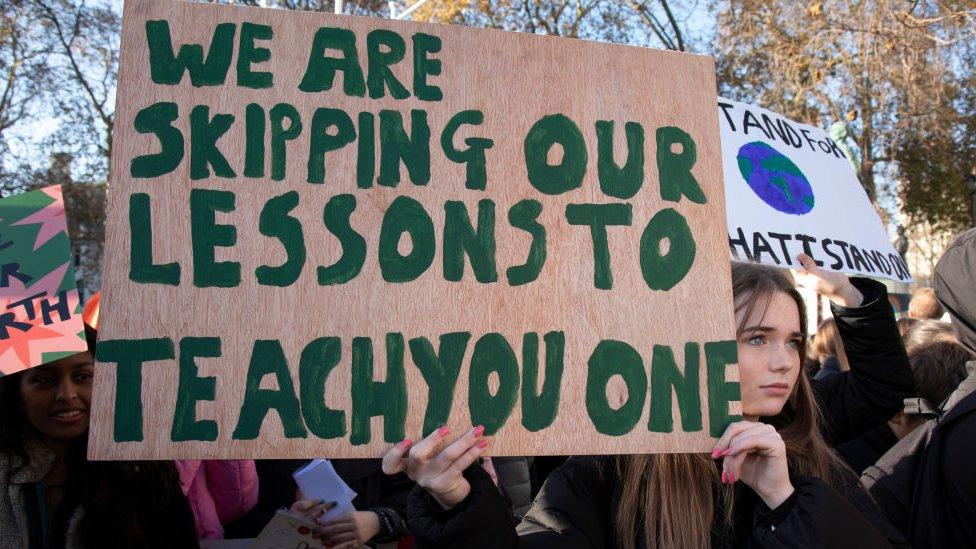UK trains: Workers to strike over pay for a second time
- Published
- comments
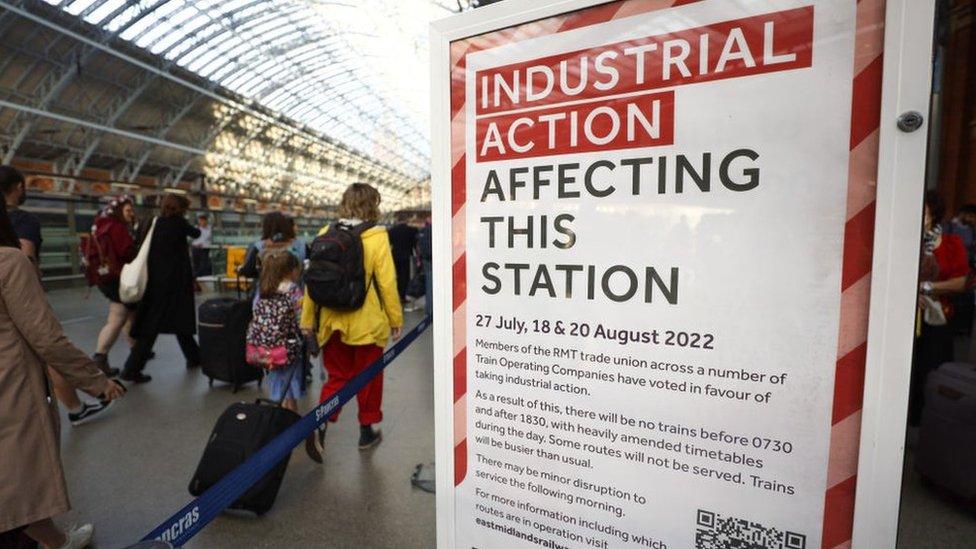
Thousands of rail workers will go on strike again on Wednesday to protest over pay and working conditions.
Around 40,000 Rail, Maritime and Transport (RMT) union members, and 14 train companies are taking part in a strike - meaning they will not work on certain days.
As a result 80% of train journeys on Wednesday will be cancelled with only the remaining 20% going ahead.
Earlier this year a three-day strike took place in June, because talks between rail workers and bosses fell through.
The strike will have an impact on people's school summer holiday plans, as well as those heading to the Women's Euro's semi-final match between France and Germany in Milton Keynes.
Network Rail and the government say it could affect the Commonwealth Games in Birmingham, which start on Thursday.
We want to know if the train strikes have affected you? Head to the comments to let us know.
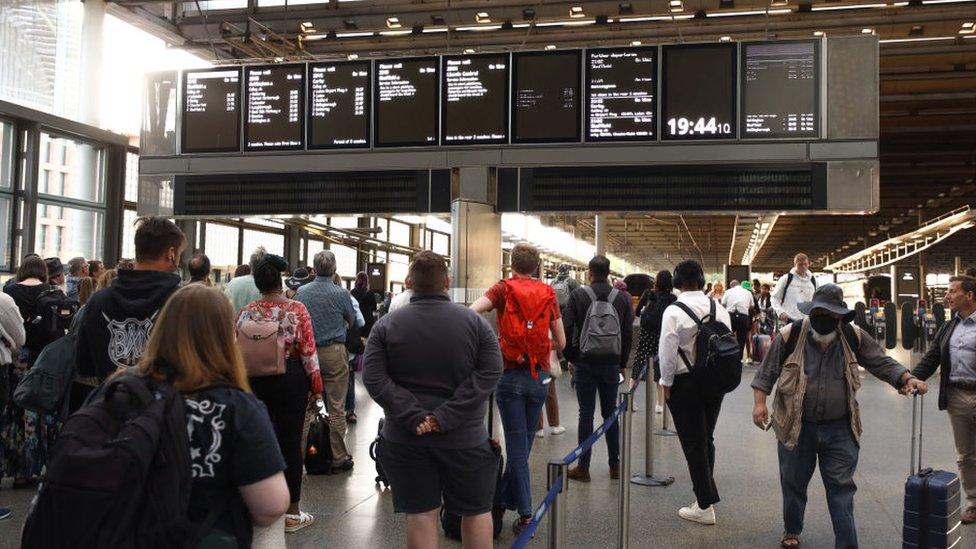
The latest rail strike is taking place on Wednesday 27 July.
Rail companies have warned there might also be some knock-on disruption to services the next day.
More rail strikes are also planned for 18 and 20 August, with London Underground staff planning to strike on 19 August.
Network Rail's boss Andrew Haines said: "I can only apologise for the impact this pointless strike will have on passengers, especially those travelling for holidays or attending events such as the Uefa Women's Euro 2022 semi-final and the opening ceremony of the Commonwealth Games [on Thursday].
"It is frustrating to yet again ask our passengers to change their plans and only make essential journeys."
RMT union general secretary Mick Lynch said: "We will continue to talk to the employers but there remains a huge chasm between us around pay, job security and working conditions."
A Department for Transport spokesperson said: "RMT's actions will affect people in need of urgent care, hardworking families off on long-awaited holidays and day trips, and businesses."
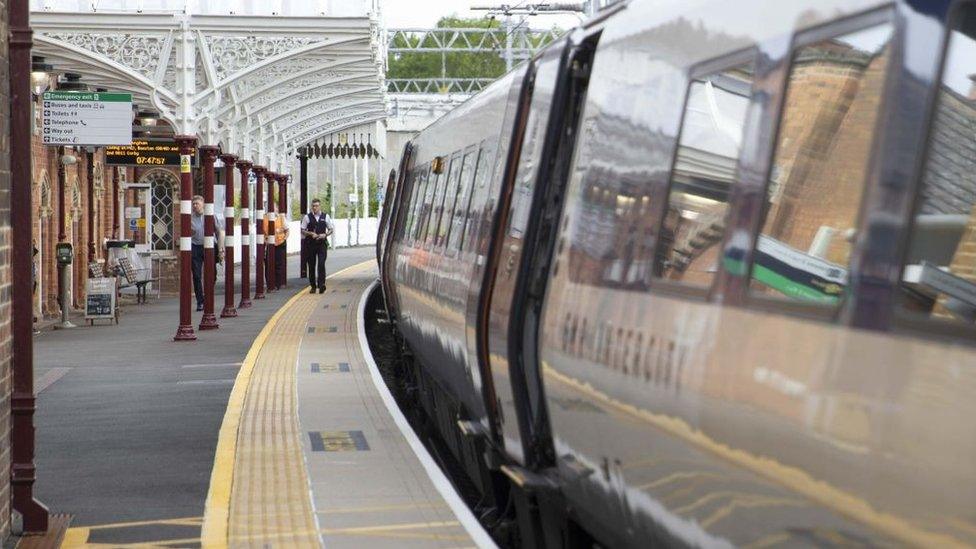
Why are the strikes happening?
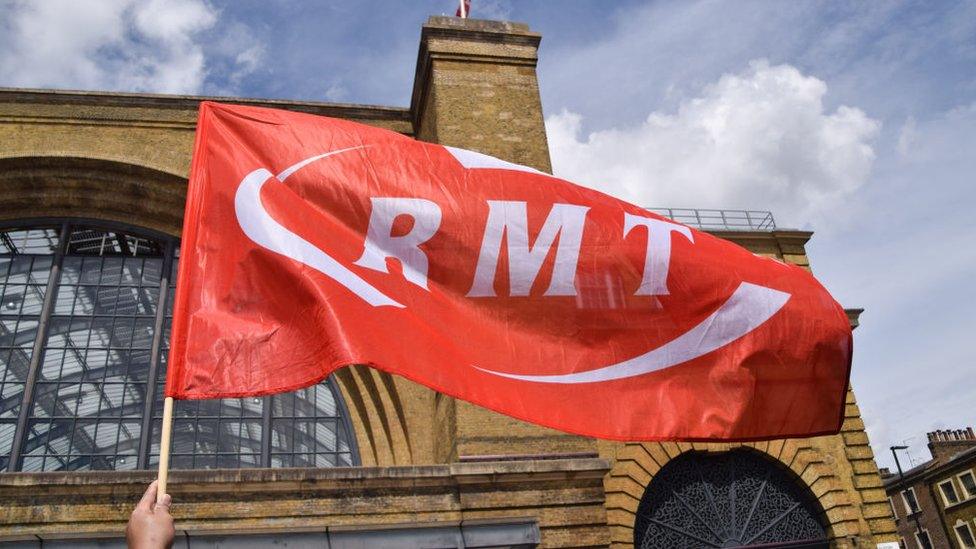
The rail union leaders rejected the train bosses latest offer
Today's strike happened after the rail company and the unions which represent workers failed to reach an agreement.
Network Rail had offered a 4% pay rise for the rest of 2022 and a possible 4% next year if workers accepted changes in working conditions - but the union turned this down.
The RMT union says this is a "paltry sum" - which means not very much - and represents "a real-terms pay cut".
The government has said it's not their responsibility to get involved in negotiations and says it's up to the train operating companies and the RMT union to work things out.
The idea behind strikes is to show how important workers are to the companies they work for, to the customers they support and also to people who have the power to influence workers' rights - the government.
While some members of the public support the strikes this week, other people are against them.
- Published21 June 2022
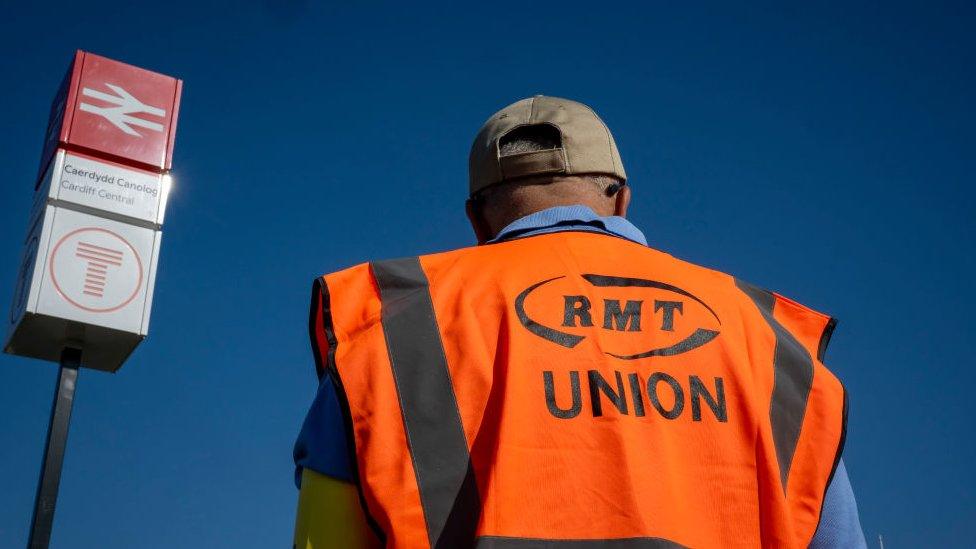
- Published2 December 2019
